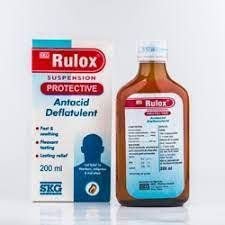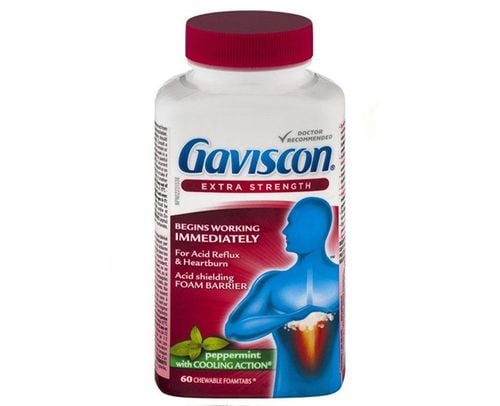This is an automatically translated article.
Amp Ginine has an amino acid composition of the body, participates in the metabolic cycle in the liver, helps support liver function in some cases, so Amp - Ginine can be used for adults as well. and children. Please refer to the information about the uses and precautions when using the drug through the article below.
1. What is Amp Ginine?
What is Amp Ginine? The main ingredient of Amp-Ginine is Arginin Hydrochloride with a concentration of 200mg and excipients (tapioca starch; magnesium stearate; talc), prepared in the form of capsules. Arginin is an amino acid of the body that participates in the process of creating urea in the liver, so when used, it has the effect of regulating blood ammonia levels that are increased in some liver diseases, treating liver dysfunction and especially in patients with enzyme deficiency.
Arginin has a hepatoprotective effect, especially on hepatocyte membranes, significantly reducing serum GOT and sGPT concentrations. The drug is often used and prepared in combination with some other amino acids such as aspartate, ornithine to help detoxify the liver, neutralize excess ammonia in the body and contribute to the treatment of disease conditions such as hepatitis, cirrhosis. liver, helps to lower cholesterol, helps to eat well, prevents skin tanning.
2. Uses of Amp-Ginine
Amp Ginine is used to support liver function and is indicated for treatment:
Maintenance treatment of hyperammonemia in patients with carbamylphosphate synthetase deficiency, ornithine carbamyl transferase deficiency. Treatment of digestive disorders, indigestion. Adjuvant therapy improves exercise capacity in patients with stable cardiovascular disease.
3. Usage and dosage of Amp Ginin
How to use: Amp Ginine is taken orally.
Dosage: Amp Ginine is recommended for both adults and children. Dosage varies depending on the patient and the disease.
Maintenance treatment of hyperammonemia in patients with enzyme deficiency such as carbamylphosphate synthetase, ornithine carbamyl transferase deficiency:
Newborns: Oral 100 mg/kg daily, divided into 3-4 times. Children from 1 month to 18 years: Take 100 mg/kg per day, divided into 3-4 times. Maintenance therapy in hyperammonemic patients with citrulinemia, arginosuccinic
uria.
Newborns: Take 100 -175 mg/kg/time; Take the medicine 3-4 times a day with food. Children from 1 month to 18 years old: Take 100-175mg/kg/time; 3-4 times daily, with food, adjust dose according to response. Treatment of dyspeptic disorders:
Adults: Oral with a dose of 3-6 g/day. Adjuvant therapy to improve exercise capacity in individuals with stable cardiovascular disease.
Adults: Drink at a dose of 6-21g/day, not more than 8g each time. Overdose: Overdosage may lead to transient metabolic acidosis, which may be accompanied by tachypnea. Overdose in children can lead to increased metabolism, cerebral edema or possibly death. Therefore, when the drug overdose and dangerous complications appear, the patient should immediately go to the nearest medical center or hospital for treatment as soon as possible.
4. Contraindications to taking Amp Ginin
Contraindicated to use Amp Ginine with the following subjects:
Patients with chronic renal failure; Patients with hypersensitivity to any ingredient in the drug; Urea cycle disorder due to deficiency of arginase enzyme;
5. Amp Ginin side effects
Amp Ginine is well tolerated, however, during use, patients may still experience some of the following side effects:
May cause diarrhea and abdominal pain, especially in patients with symptoms. bowel function; Causes abdominal distension; Endocrine and metabolic: Hyperthermia; Skin: Causes edema, redness and pain; Hematology: Decreased platelet count; Anaphylactic reactions can occur but are rare. Other side effects: Flushing, local vein irritation When unusual symptoms appear, the patient should monitor and notify the doctor if the side effects persist or become more severe.
6. Notes when using Amp Ginine
In the process of using Amp Ginine, patients should pay attention to the following:
Should be used with caution in patients with mild and moderate kidney disease. When used in high doses for the treatment of acute ammoniaemia, hyperchloremic metabolic acidosis may occur. Therefore, patients need to be monitored for plasma chloride and bicarbonate levels, and supplemented with corresponding amounts of bicarbonate to avoid blood acidosis. Pregnancy and breast-feeding: For pregnant women, there are no adequate and well-controlled studies on the use of the drug. Therefore, this drug should not be used by women who are pregnant. Lactation: It is not known whether arginine is excreted in appreciable amounts in breast milk or poses a risk of harm to the infant. Therefore, the use of this drug is not recommended for pregnant women.
7. Drug interactions
Drug interactions: You should not use Arginin concurrently with the following drugs:
Combined oral contraceptives estrogen and progestogen Thiazide diuretics, xylitol and aminophylin; Antidiabetic drugs sulfonylureas such as gliclazide, glyburide,... Epilepsy drugs phenytoin Potassium-sparing diuretics such as spironolactone, amiloride, triamterene cause changes in the amount of potassium in the blood. Storage conditions: Amp Gins is stored at temperatures below 30°C, should be stored in the original packaging. Avoid direct sunlight and keep away from children and pets.
Hopefully, with the above information, you have a better understanding of the uses, ingredients and how to use Amp Ginine. If you have any questions, you can consult your doctor or pharmacist to use the medicine effectively.
Follow Vinmec International General Hospital website to get more health, nutrition and beauty information to protect the health of yourself and your loved ones in your family.
Please dial HOTLINE for more information or register for an appointment HERE. Download MyVinmec app to make appointments faster and to manage your bookings easily.













